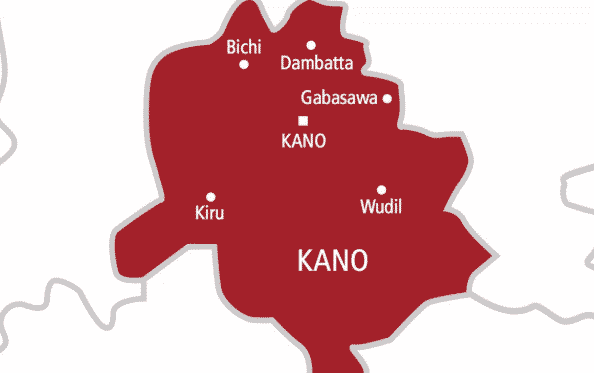The choice of this piece’s title might come to mind as dumbfounding, for, if nothing, one might find juvenile, the existential locus or nexus that sandwiches the notion of bad roads and the ability to spell out the noun ‘Kano’ correctly. But at given moments in our lives, one finds out that some ideas thought to be exclusively dissimilar to each other are, after all, analogous. It is within this context that I found the contributing link between our bad roads and the ability to spell Kano correctly as essential, as much as it is perplexingly hilarious. In my father’s active working life as a civil servant, he was privileged to have drivers who took him on official assignments across the country. One of my father’s driver was born and almost certainly raised in Kano; one of Nigeria’s commercial nerve centers. One day, my father said that his driver could not spell Kano correctly. He spelt it ‘Knao.’ This is amazingly shocking. Someday, with the driver who could not spell Kano correctly, my father was involved in a car crash. Although the crash was fatal, my father and driver sustained injuries and fractures and survived it.
But road accidents are a normal, everyday occurrence in Nigeria, and it is observable that we have assented to it as an inflexible part of our lives. Where we are lucky to show up at our destinations safely, we thank God for journey mercies; where we bump into the con of death, we tell ourselves that we died because we had to die, because God, in His high places, issued the diktat. But the dismal factor of our lives is our inability to resolutely map out the root cause of road accidents. To put it modestly, road accidents cannot be expunged completely even in the most developed societies, but it can be reduced significantly as generic knowledge of life expresses road accidents as a conclusive consequence of negligence. In serious countries that abhor negligence, road accidents are a very rare occurrence.
In Nigeria, it is quite unexpected for road travelers to arrive at their destinations in one piece. It is even more difficult to begin to itemize the causes and instigations of these accidents. Because these causes are often bottomless and unlimited, any attempt to delineate what triggers such might be futile. Take a journey for instance within Nigeria, in a public car or bus, and notice the detectable evidence of an unconditional negligence. Highway ethics is practically zilch to the mostly illiterate drivers on our roads. Ask them some simple travel and/or automobile procedures that scale from basic road use to essential mechanical and/or electrical maintenance and notice the abysmal state of their alertness. Study the mental complacency of the everyday Tashan Bama commercial car driver who routinely travels from Maiduguri to Yola and notice the miserliness in their thoughts. On leaving Maiduguri in the late hours of the morning, all the driver wants to pull off with is to observe the Zuhr or Asr prayer in Yola. How he achieves that? Simple! He speeds at a tempo capable of breaking recommended speed limit, unmindful of the sorry shapes of our roads. But the logic in the speed to meet up with a prayer time is depressing. It is ironical that a man could opt for a giant race to stop to offer prayers to God as God is everywhere and He receives prayers everywhere. More so, God and speed should not be drawn to a parallel since it is highly problematic reconciling the reality of toying with people’s lives on the one hand to achieve steadfastness in worship, on the other hand.
But to leapfrog from this unpromising start, it is imperative that we take a detour from our collective culture of perceiving destiny in an off-putting sense. It looks like all the while we have conceptualized and even dwelled unswervingly in a destiny that comforts our doggedly idealized parochialism; a sense that self-soothes this national guilt of ours. Is it not high time we understood in plain terms what destiny is, what it is not, what it should and should not be? When will we start accepting road accidents as occurrences that follow from consummate negligence on our part? When will we stop seeing providence as causative of our evidently purposeful inanities, weaknesses, disabilities, etc.? In Nigeria today, it is apparent that car driving as a job has been left for the illiterates. Again, little wonder why one of my father’s drivers could not perceive a diversion sign on the highway how much more comprehend its meaning. Should drivers in Nigeria be at least educated enough to be able to read basic English words? What about the drivers who find it enormous a task (owing to their illiteracy) to operate car air conditioners or stereos? Should they be clever enough to act upon basic tasks like reading and understanding automobile manuals to allow for complying with simple DIY procedures just so they could benefit from that in the event of breakdowns, emergency maintenance and/or improvisations?
Lastly, should we not insist that drivers be just a little proficient in the sense of being clever enough to be able to spell Kano correctly knowing that there is really no complexity in spelling the word? If you are driven by someone who could barely spell Kano even though he was born and raised in that city, what guarantees have you that while he drives, he could out maneuver complex encounters from road use?

 Join Daily Trust WhatsApp Community For Quick Access To News and Happenings Around You.
Join Daily Trust WhatsApp Community For Quick Access To News and Happenings Around You.



